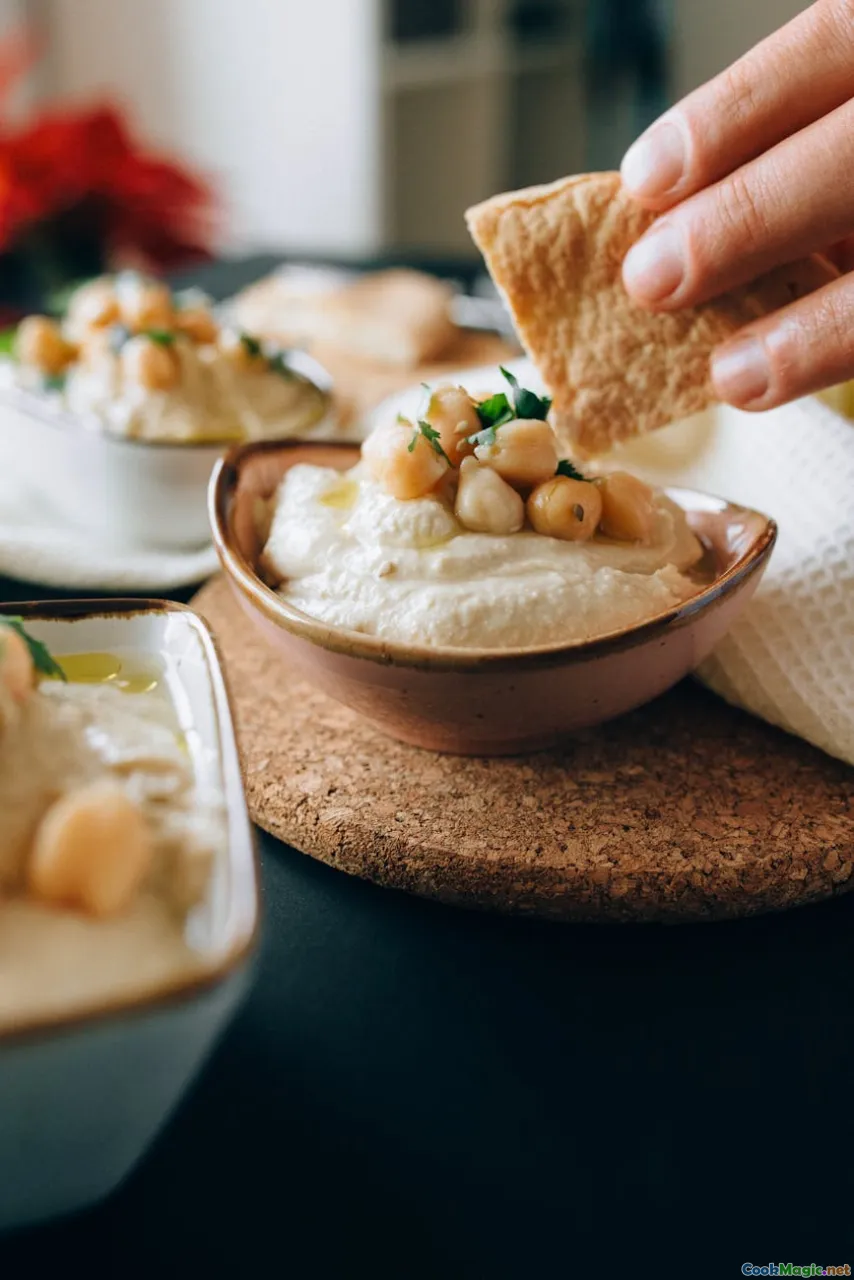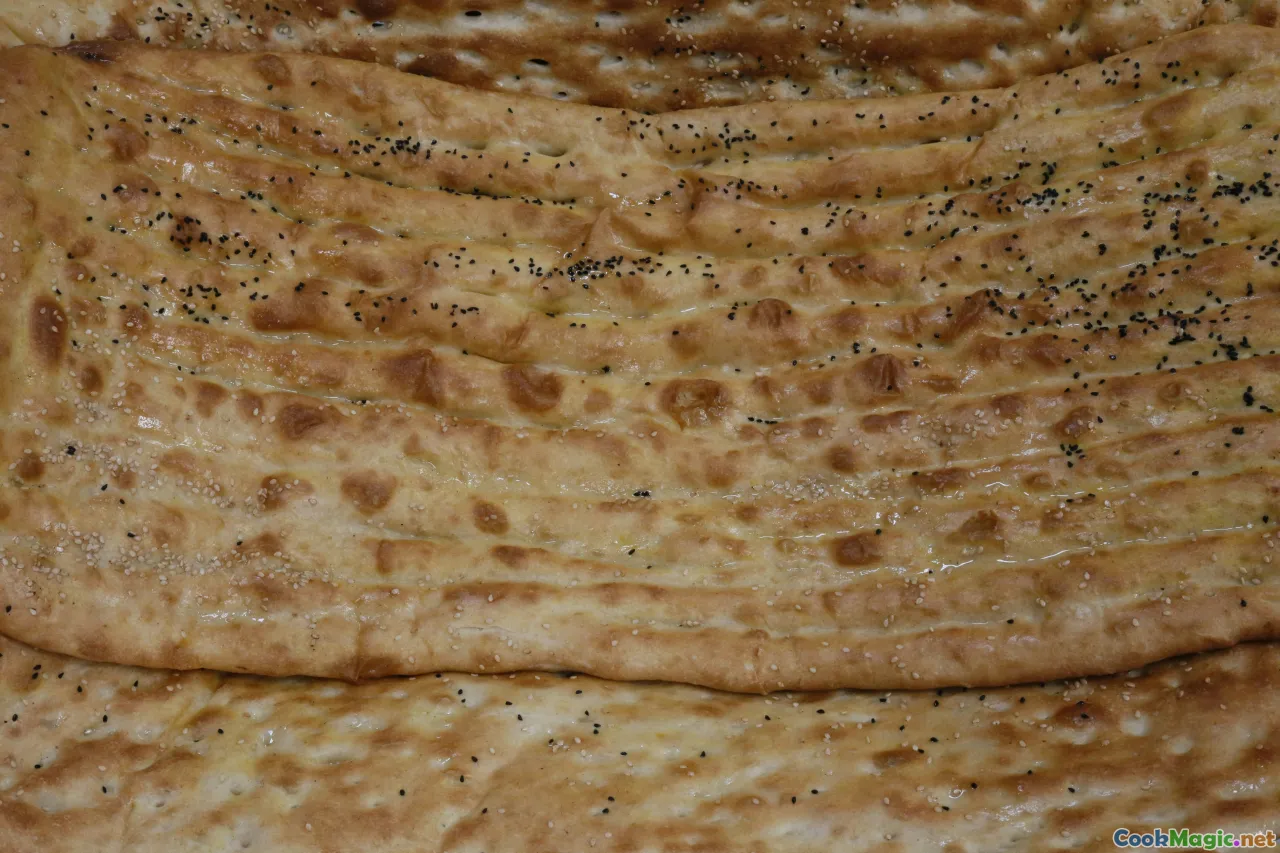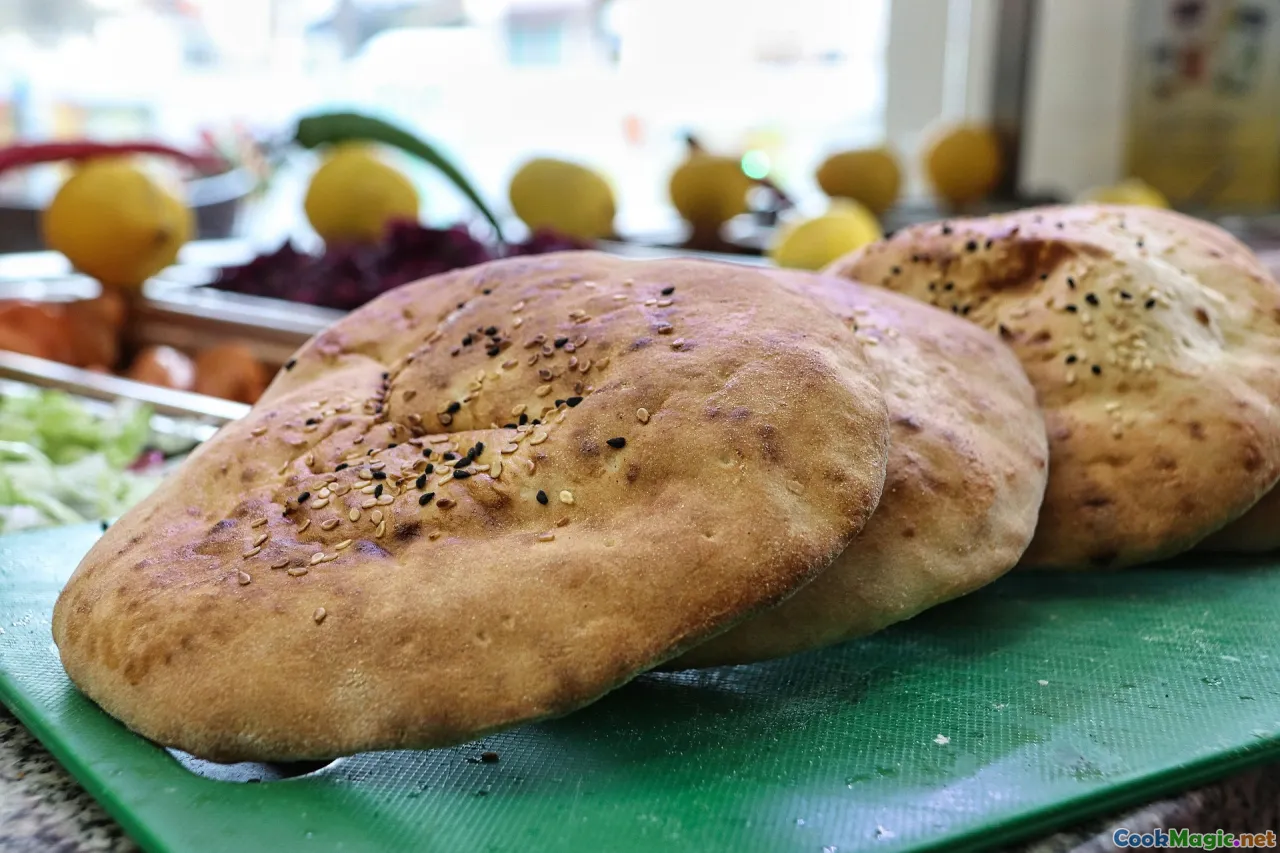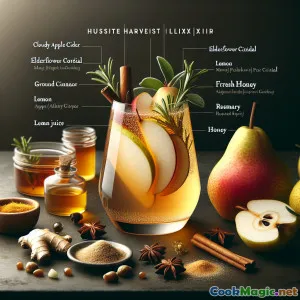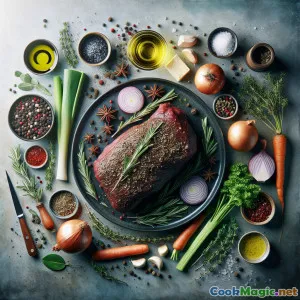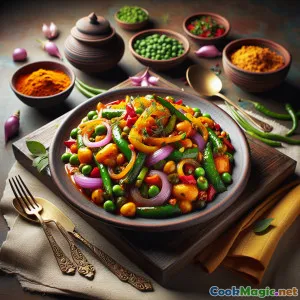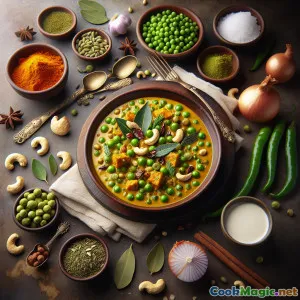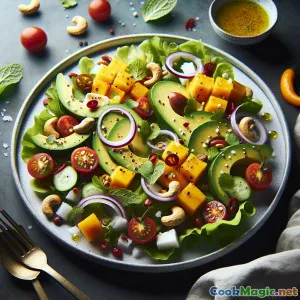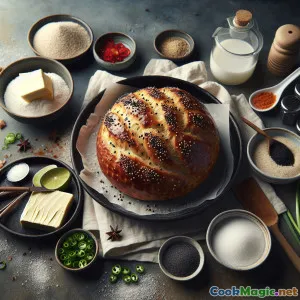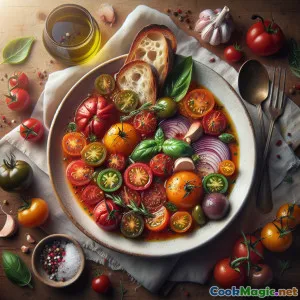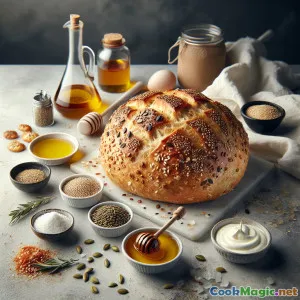
Pão Za’atar Dhayah Assado ao Sol: Delícia de pão achatado rústico
(Sunbaked Za’atar Dhayah Bread: Rustic Flatbread Delight)
(0 Avaliações)0
832
julho 14, 2025
Reportar um problema
Ingredientes
-
300 grams Farinha de trigo branca forte para pão
(Para melhor estrutura de glúten e borda crocante)
-
7 grams Fermento biológico seco instantâneo
(Um sachê padrão)
-
180 ml Água morna
(Cerca de 40°C, delicadamente aquecido, mas não quente)
-
3 tbsp Azeite extra virgem
(Qualidade recomendada)
-
1 tbsp Mel
(Pode substituir por xarope de agave ou maple)
-
1.5 tsp Sal
-
2 tbsp Mistura de especiarias Za’atar
(Use tradicional ou uma mistura com sumac adicionado)
-
1 tbsp Sementes de gergelim
(Branco ou misto, torrado opcional)
-
2 tbsp Iogurte Grego
(Adiciona maciez, pode substituir por iogurte natural)
(Para melhor estrutura de glúten e borda crocante)
(Um sachê padrão)
(Cerca de 40°C, delicadamente aquecido, mas não quente)
(Qualidade recomendada)
(Pode substituir por xarope de agave ou maple)
(Use tradicional ou uma mistura com sumac adicionado)
(Branco ou misto, torrado opcional)
(Adiciona maciez, pode substituir por iogurte natural)
Nutrição
- Porções: 4
- Tamanho da Porção: 1 pão sírio médio (aproximadamente 130g)
- Calories: 285 kcal
- Carbohydrates: 0 g
- Protein: 8 g
- Fat: 8 g
- Fiber: 2.7 g
- Sugar: 2.9 g
- Sodium: 375 mg
- Cholesterol: 1 mg
- Calcium: 81 mg
- Iron: 2.1 mg
Instruções
-
1 - Ativar a Fermento:
Em uma tigela, misture o fermento e o mel na água morna. Deixe descansar por 5-10 minutos, até formar uma espuma.
-
2 - Fazer a Massa:
Misture a farinha e o sal em uma tigela. Adicione a mistura de fermento ativado, 2 colheres de sopa de azeite de oliva e iogurte, se usar. Misture para incorporar.
-
3 - Sovar até ficar elástico:
Coloque a massa sobre uma superfície enfarinhada. Amasse até ficar macia, suave e flexível, cerca de 8-10 minutos.
-
4 - Primeira Fermentação:
Coloque a massa em uma tigela untada com óleo. Cubra e deixe crescer em um local quente (de preferência ensolarado) até que dobre de tamanho.
-
5 - Formar Pães Flatbread:
Divida a massa fermentada em quatro bolas. Abra ou achate em discos com cerca de 1 cm de espessura.
-
6 - Adicione Za’atar e Sementes de Gergelim:
Misture o za’atar com a 1 colher de sopa de azeite de oliva restante. Espalhe sobre cada pão, polvilhe com sementes de gergelim.
-
7 - Assar ao sol ou no forno:
Para tomar sol: Coloque os pães achatados em uma assadeira e deixe sob a luz direta do sol por 15-20 minutos para ficarem crocantes. Alternativamente, asse a 220°C (425°F) por 8-10 minutos até dourar.
-
8 - Servir:
Deixe esfriar um pouco; sirva morno com azeite extra, labneh ou seus molhos favoritos.
Em uma tigela, misture o fermento e o mel na água morna. Deixe descansar por 5-10 minutos, até formar uma espuma.
Misture a farinha e o sal em uma tigela. Adicione a mistura de fermento ativado, 2 colheres de sopa de azeite de oliva e iogurte, se usar. Misture para incorporar.
Coloque a massa sobre uma superfície enfarinhada. Amasse até ficar macia, suave e flexível, cerca de 8-10 minutos.
Coloque a massa em uma tigela untada com óleo. Cubra e deixe crescer em um local quente (de preferência ensolarado) até que dobre de tamanho.
Divida a massa fermentada em quatro bolas. Abra ou achate em discos com cerca de 1 cm de espessura.
Misture o za’atar com a 1 colher de sopa de azeite de oliva restante. Espalhe sobre cada pão, polvilhe com sementes de gergelim.
Para tomar sol: Coloque os pães achatados em uma assadeira e deixe sob a luz direta do sol por 15-20 minutos para ficarem crocantes. Alternativamente, asse a 220°C (425°F) por 8-10 minutos até dourar.
Deixe esfriar um pouco; sirva morno com azeite extra, labneh ou seus molhos favoritos.
Mais sobre: Pão Za’atar Dhayah Assado ao Sol: Delícia de pão achatado rústico
Sunbaked Za’atar Dhayah Bread: A Fusion of English Ingenuity and Middle Eastern Essence
If you’re seeking a one-of-a-kind bread—rustic, light, and aromatic—the Sunbaked Za’atar Dhayah Bread may quickly become your new favorite. Inspired by ancient Middle Eastern flatbreads and the rolling, sunlit fields of the English countryside, this recipe celebrates the best of both culinary worlds.
Historical and Cultural Roots
Flatbreads have been a staple in many global cuisines since breadmaking began. Throughout the Levant region, ‘man’oushe’ and similar flatbreads often feature za’atar, a vibrant blend of wild thyme, sumac, and sesame seeds. These breads were traditionally baked on hot stones under a searing sun—hence our ‘Sunbaked’ moniker. The twist here is an English approach: strong bread flour for structure and local olive oil, honoring artisan baking culture that’s gaining ground across the UK.
What Sets This Bread Apart?
While traditional za’atar bread relies on a wood-fired or stone oven, replicating the heat and direct sun adds not just an evocative name but a special delicacy to the crust. In true creator’s spirit, our recipe allows you to use an oven for ease, or, when blessed with a rare hot English day, you can genuinely sunbake these rounds outdoors on a safe, clean tray.
Adding a spoon of silky yogurt gives the bread tenderness, balancing the bold lemon and herbal snap of za’atar. Honey is a quiet enhancing note—often unexpected in savory baking, but gently bridging English hedgerow customs and Levantine aromas.
Culinary Tips & Serving Ideas
- Za’atar: Use the freshest available. A homemade blend (thyme, sesame, sumac, a whisper of salt) guarantees aroma and color.
- Sunbaking: Use sunlight-safe baking sheets. Avoid plastic, and move the breads out of direct sun after crust forms to cool and rest.
- Sides and Dips: Serve alongside labneh (strained yogurt cheese), hummus, or olive tapenade. Equally delicious with sharp Cheddar and fresh garden tomato—a cross-cultural picnic treat.
- Flour Matters: For a slightly heartier loaf, swap in up to 30% wholemeal.
Unique Aspects & Creative Inspiration
Baking bread under natural sunlight evokes a nostalgic sort of self-sufficiency. For home chefs, especially in parts of England that seldom see Mediterranean summers, even partial sunbaking is unexpectedly fun, bringing family or friends outdoors into the process. Kids love brushing the za’atar paste, and as the aroma curls through garden air or open kitchen windows, everyone grows even more impatient for a bite!
The za’atar itself is where you can make your mark—varying the combination can personalize your bread and allow endless seasonal permutations. Smoked or black sesame, extra sumac, or extra thyme all offer ways to experiment innocently.
Final Thoughts
Sunbaked Za’atar Dhayah Bread is a celebration of bridging gardens and cultures, equally suited for snacking with fresh herbs at an English picnic or as part of a Levantine mezze. Its sturdy crumb holds together robustly for open-faced toppings (think: roasted aubergines, tomatoes, or even sizzled eggs), or for tucking into lunchboxes or baskets.
Relatively quick to prepare (especially skipping a long proof by using milk-warm sunshine), this bread creates a moment—to linger both over the scents in your kitchen and the memory of wide fields sparkling under the same sun.

